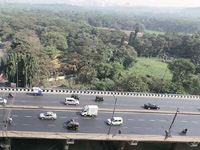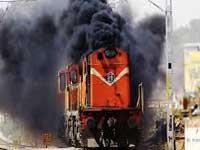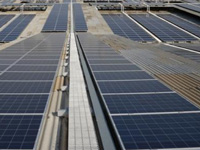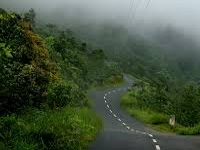Coal: a heavy burden on the Indian railways
India’s power demand is rising more quickly than its renewable capacity additions, accelerating plans to mine, transport and burn up to 65% more thermal coal for electricity generation by 2030. Several
India’s power demand is rising more quickly than its renewable capacity additions, accelerating plans to mine, transport and burn up to 65% more thermal coal for electricity generation by 2030. Several

MUMBAI: Yuva Sena chief Aditya Thackeray today alleged that the environment assessment report provides misleading information about Aarey milk colony, where a car shed of the city's Metro-3 project is

The CPCB's interim report, titled "Exhaust Emission Benchmarks for Diesel Locomotives on Indian Railways", aims to fix standards and protocols for the sector to achieve the targets submitted by India under
The Union Cabinet approved a new Metro Rail Policy that seeks to enable realization of growing metro rail aspirations of a large number of cities but in a responsible manner. The policy opens a big window
<p>Order of the National Green Tribunal (Eastern Zone Bench, Kolkata) in the matter of Subhas Datta Vs Ministry of Railways & Others dated 10/08/2017 regarding waste management of the Howrah Railway

The Indian Railways spends a huge amount of money on diesel to power its trains each year which, apart from the monetary impact, also takes an environmental toll. To address the issue, the Railways is

With a CAG report calling food served by Indian Railways “unfit for human consumption”, the Ministry of Railways has come out with a list of steps that it is taking to improve catering services. Stating

The line, announced 20 years ago, cuts through dense forests of the Western Ghats The much-delayed, controversial project to provide a railway line — connecting Hubballi in the plains and Ankola on

A mobile science exhibition will arrive at the city railway station today ‘Science Express,’ a mobile exhibition focusing on climate change, will arrive at Puducherry railway station on Thursday.
The construction of the second phase of the 120 km Standard Gauge Railway (SGR) will not affect the wildlife habitat, the wildlife agency said late on Thursday. Kenya Wildlife Service (KWS) Director
Uganda and Tanzania have decided to have their new standard gauge railway lines built with electric capability, as they plan to eventually upgrade to electric trains when energy supply needs are eventually